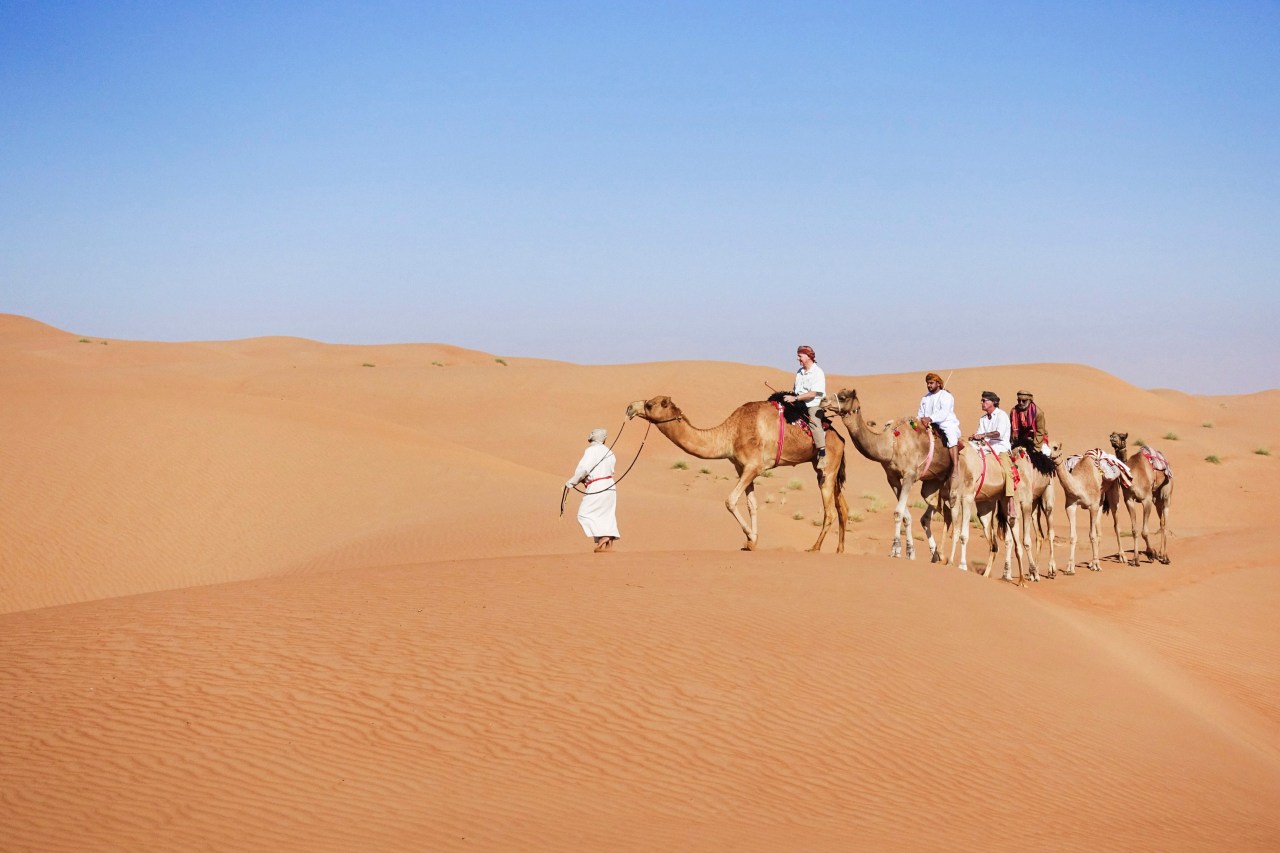Bourdain-isms
“It’s morning in the Arabian Desert, the place explorer Bertram Thomas called the ‘Abode of Death.’ But it’s a beautiful place, the kind of place I look for more and more these days: stark, empty, clean sand that stretches out seemingly forever.”
“Oman defies expectations; it shouldn’t, according to the cruel logic of the world, exist. But it does, and it’s incredible.”
“It is surrounded by some of the trickiest and most contentious powers in the region, and yet here it is, relatively small, tolerant, welcoming to outsiders, peaceful, and stunningly beautiful.”
“The question of what’s next is a big, if often unspoken, one.”
“You know this cat, or … just a village cat?”
“How do you say ‘delicious’ in Arabic?” Answer: لذیذ/ (lazeez/latheeth).
“There’s an unusual mix here—a very graceful, a very proud mix of cultures and languages.”
Dear leader—really, though
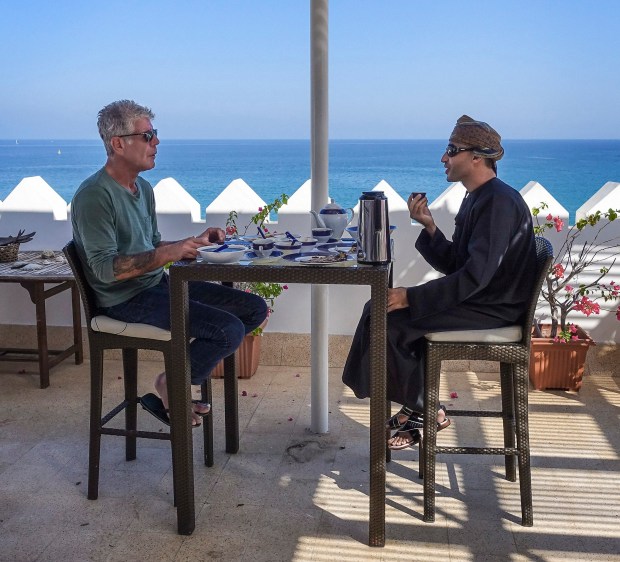
Sultan Qaboos (full name Sultan Qaboos bin Said al Said), the leader of Oman, is credited with modernizing the country. Before the advancements under his rule, there were only nine miles of paved road in the kingdom’s capital, Muscat.
Oman is not a democracy. But people seem to have genuine affection for what Bourdain calls its “much-admired, enigmatic absolute ruler and monarch” of 47 years.
“Usually one-man shows are not a good thing,” Bourdain quipped to businessman Sheikh Zayed bin Sulamain al-Ghafri about the nation’s esteemed ruler.
“People just felt like he’s the man that they were waiting for to enlighten life,” al-Ghafri said, “and to open doors for them.”
Eats
Bait Al Luban
Al Mina Street, Muttrah Corniche, Muscat, Oman
+968 24711842/+968 9457 9457
Bourdain ate: shuwa (Omani pit-roasted goat), pakora (Indian fritters), kachori (Indian lentil pastries), chapati (fresh-baked Indian bread).
At this local boarding house turned restaurant, Tony and Aisha meet up for dinner with her associates Hassan Meer, a celebrated Omani artist, and Muzna Muzna Almusafer, an Omani filmmaker. They eat shuwa, the iconic Omani special-event dish, and pit-roasted goat.
Feeney’s Restaurant & Bar
Beach Bay Hotel, Muscat, Oman
+968 9295 6547
Bourdain had: Guinness.
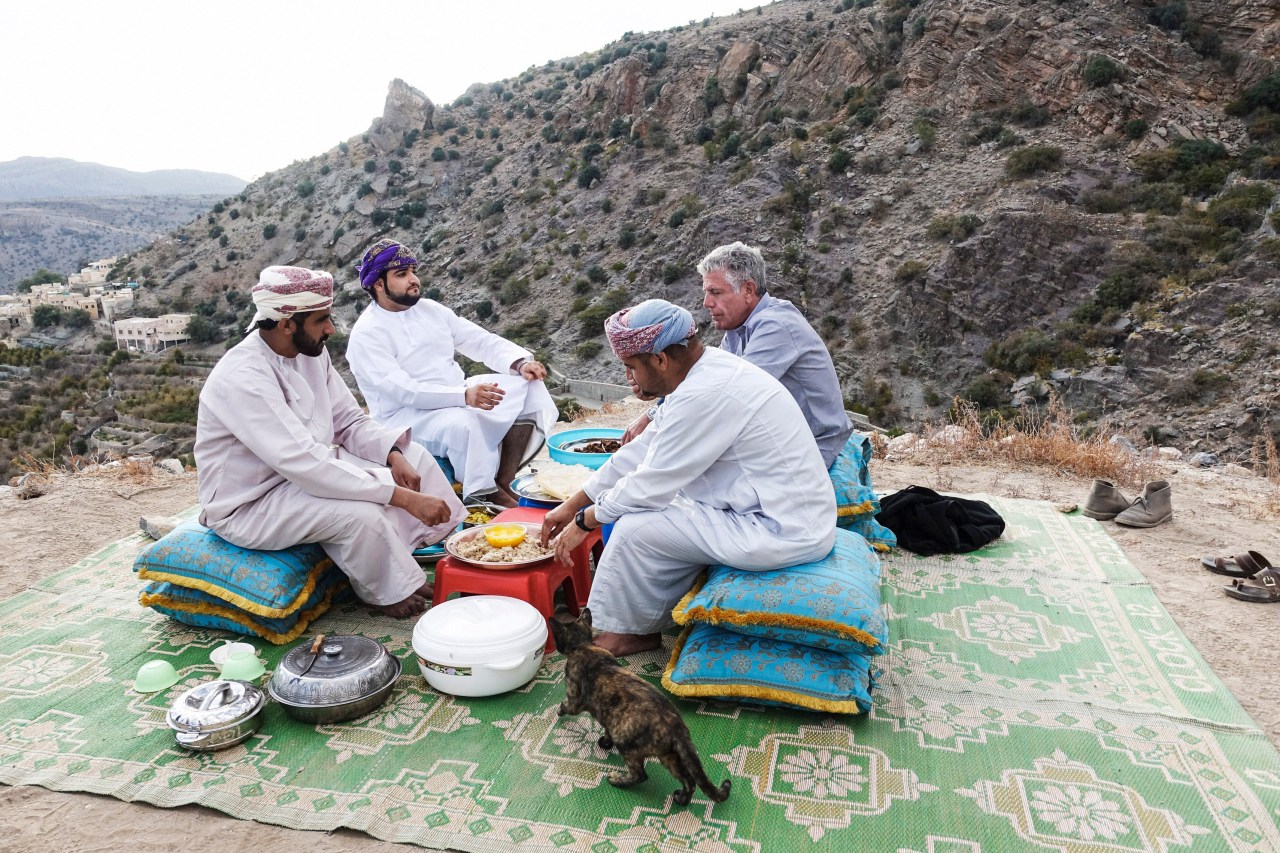
Sidekicks
Sheikh Zayed bin Sulaiman al-Ghafri: a businessman and son of a tribal leader.
Aisha Stoby: a Ph.D. candidate in Middle Eastern Studies and art.
Hassan Meer: a celebrated Omani artist.
Muzna Almusafer: an Omani filmmaker.
Ian Gardiner: a former British Army Special Air Service officer who served in the Dhofar War in the 1970s.
Zahara al-Awfi: an Omani chef and philanthropist.
Hamdan al-Saqri: an engineering student in Muscat, born and raised in Jebel Akhdar to a long line of farmers.
Amer al Wahibi: a Bedouin man.
Mark Evans: a British explorer.
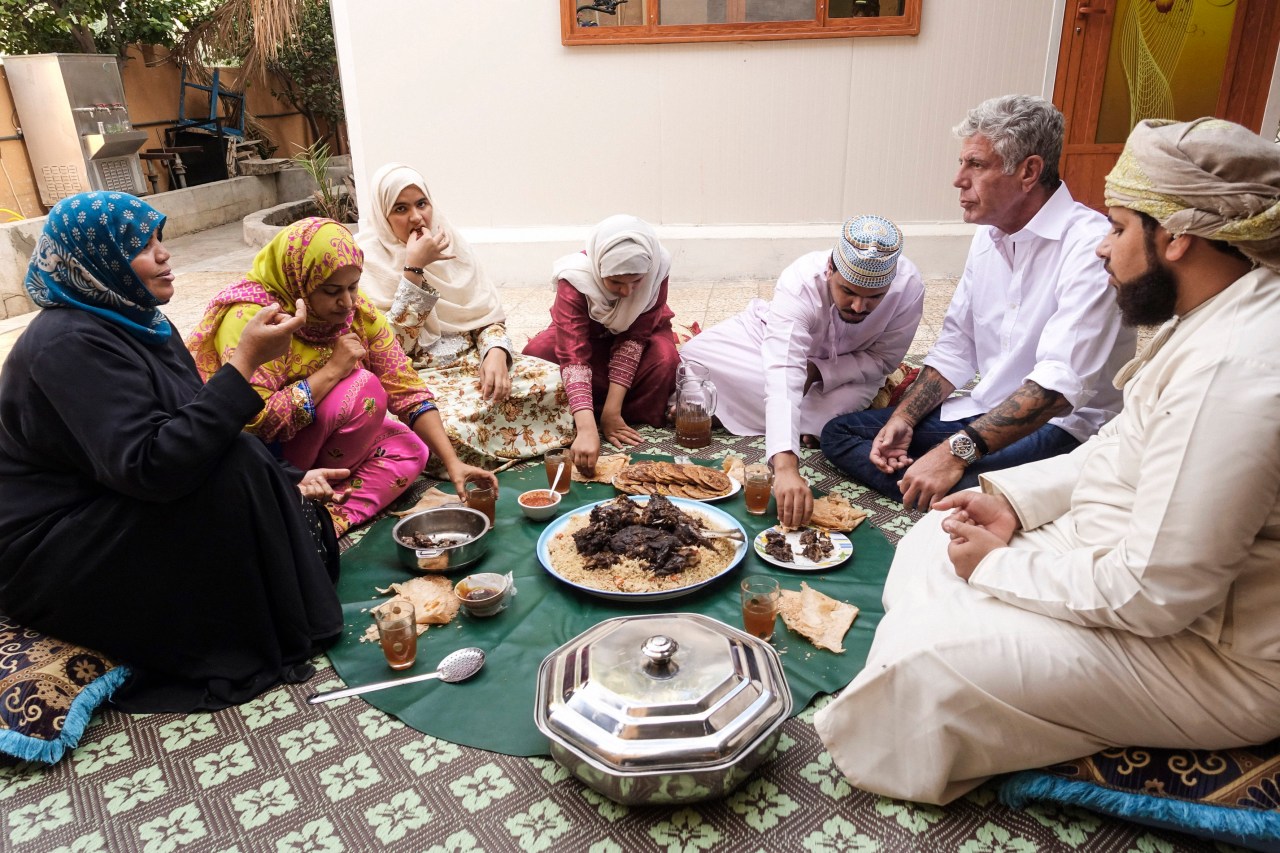
Faith
The majority of Omanis are neither Sunni nor Shiite, but Ibadi Muslim. Ibadi Islam is also practiced in parts of North and East Africa. Unity and understanding are cornerstones of the Ibadi Muslim faith, Bourdain notes.
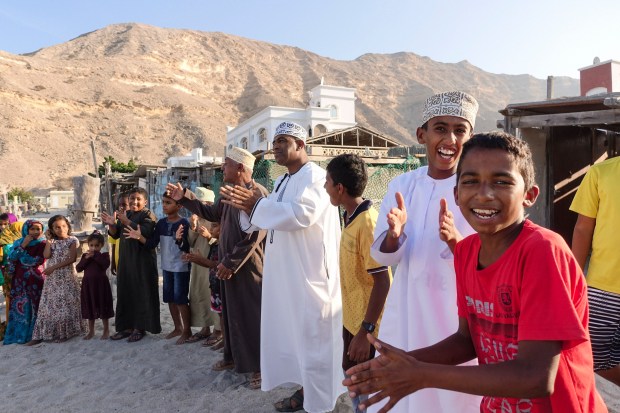
Down to Earth
Omanis submit building proposals to their municipalities before building. It is “frowned upon” if the building goes above a certain height, said Aisha Stoby, a Ph.D. candidate, explaining how Oman is one of the few Persian Gulf oil exporters without many towering skyscrapers.
A lesser-known war
The Dhofar Rebellion, also known as the Oman Civil War, began as an uprising of people from the Dhofar region in Oman’s south against then-Sultan Said bin Taimur. The conflict soon became a proxy war, with the Soviet Union and China supporting the rebels and Britain and its allies supporting the sultanate.
“You’d have heard about it if we lost it, I can tell you,” Ian Gardiner told Bourdain. Gardiner is a former British Army Special Air Service officer who served in the Dhofar War in the 1970s.
